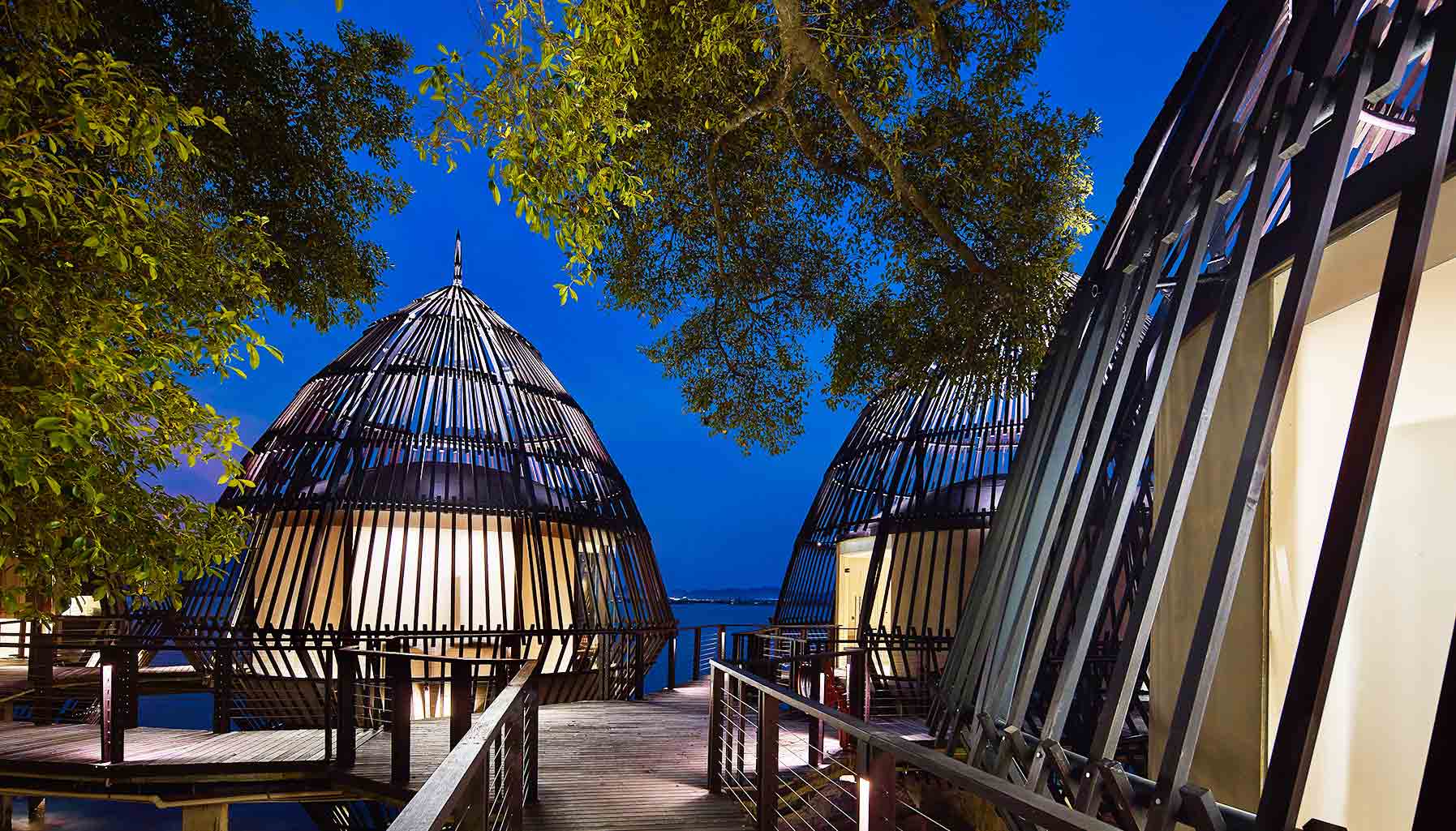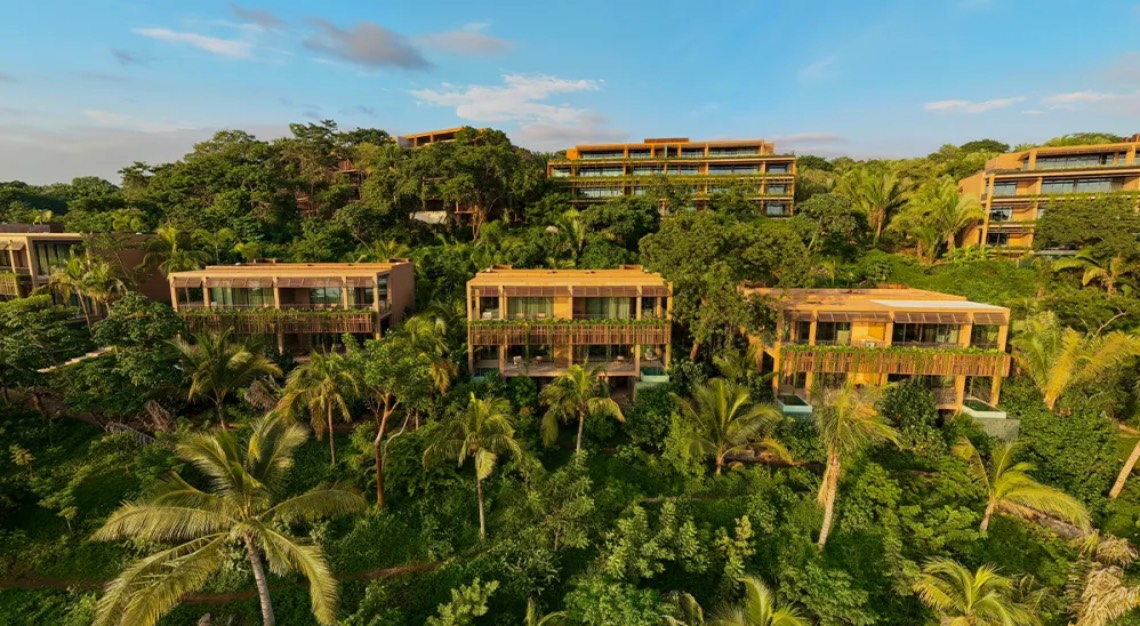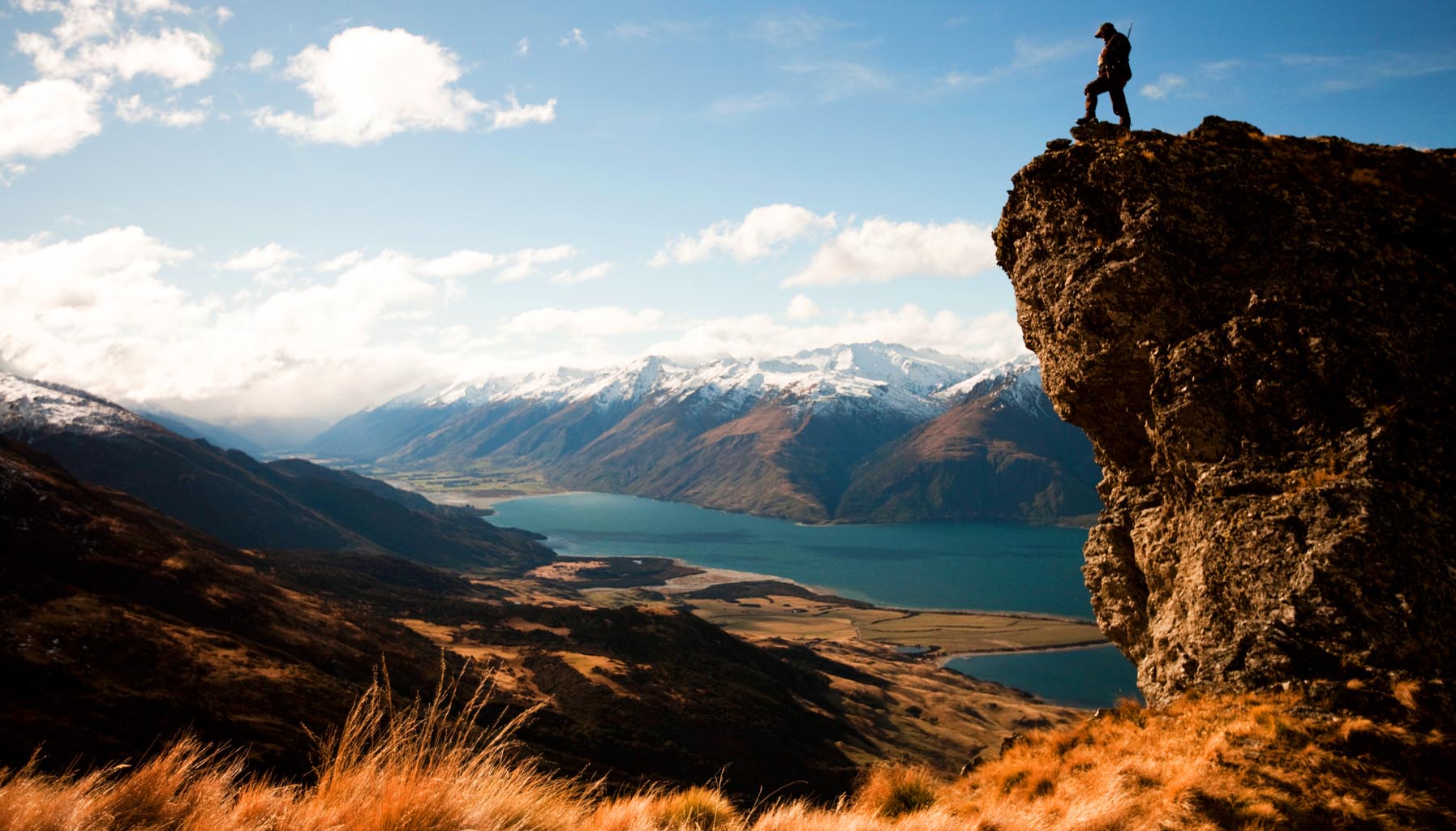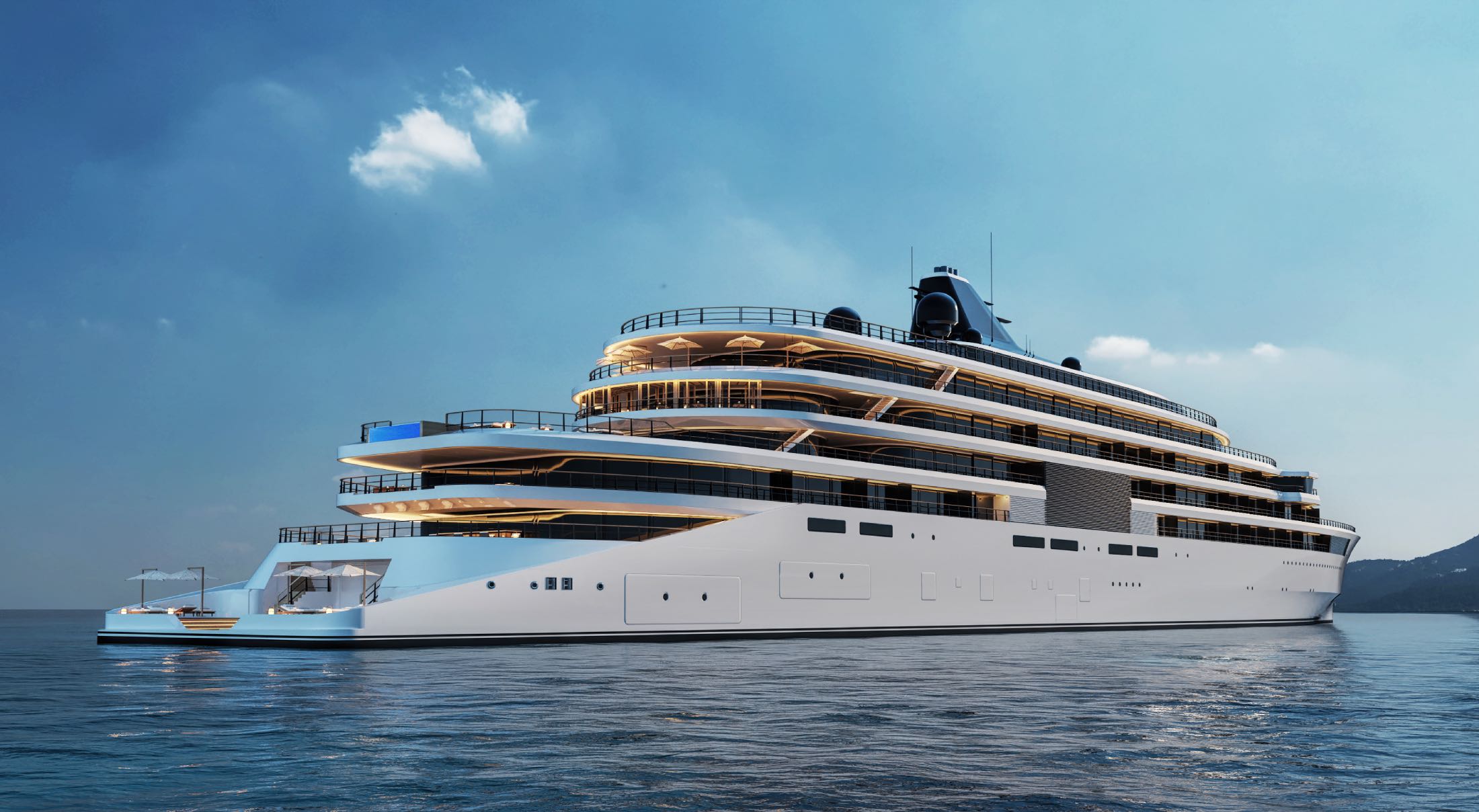Good for the ‘gram and even better for the environment, hoteliers say these leafy resorts has deep roots.
Tree houses are cute and nostalgic. Kids love them. But can they really provide a sophisticated luxury resort experience that’s worth returning to again and again?
From Tennessee to the Loire Valley, five-star tree house resorts are popping up just about everywhere these days. A world-weary, been-there-done-that traveller might be tempted to dismiss the category of tree house hotels as just another novel, flash-in-the-pan Instagram moment. But a new generation of hoteliers begs to differ, claiming that ‘Gramability’ can coexist with the important work of elevating eco-consciousness.
“There’s no question that hoteliers are more focused than ever before on sustainability, and today’s travellers care more about the environment and climate change than ever before,” Mike Freed, the owner of Post Ranch Inn in Big Sur, Calif., which operates seven eco tree houses, tells Robb Report. “Hoteliers are becoming more focused on providing guests with sustainable, organic, and non-toxic products that promote both the environment and wellness.”
Nowhere is that more apparent than at the four-key Treeful Treehouse, which opened in 2021 under the quiet cover of the pandemic.
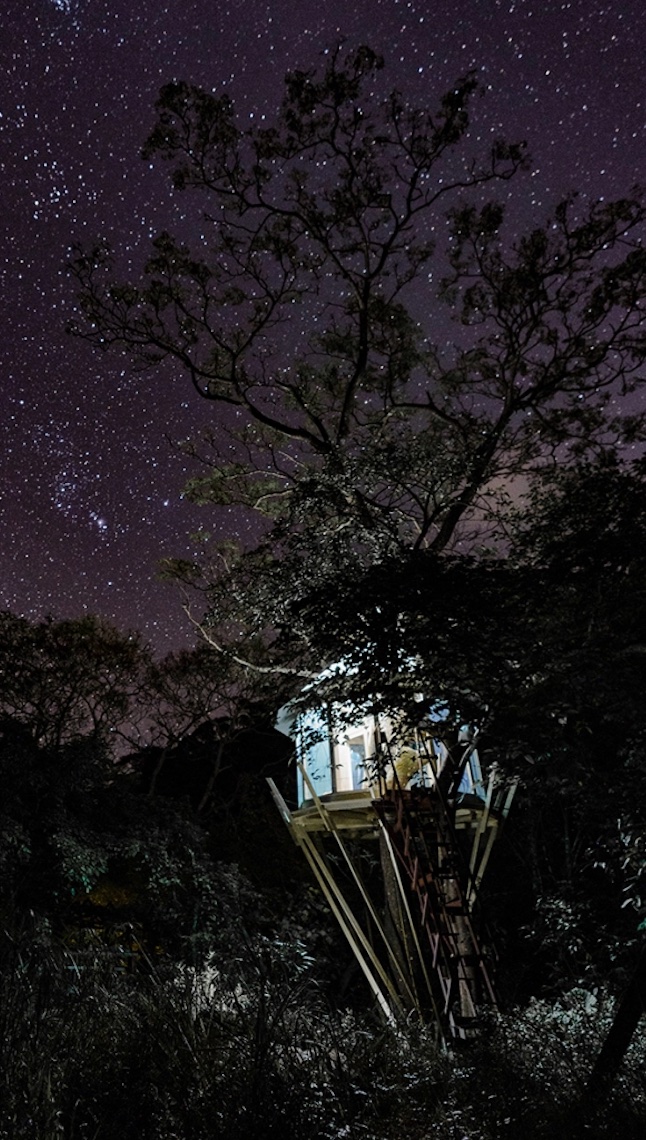
Courtesy of Treeful Treehouse
Nestled beneath a canopy of Akagi trees in a remote area within Okinawa, Japan’s Yambaru National Park, the resort feels primed for Insta.
Glittering string lights illuminate the resort’s whimsical Spiral Treehouse. Floating mere inches above the Genka River, the suite has a connecting sauna, reachable via a single-plank sky bridge. It’s a fantasy dreamscape. Think Swiss Family Robinson with all the creature comforts of your childhood tree house dreams. There’s no TV or Wi-Fi here. As blissfully removed as it is from reality, the hotel has a very real mission.
“Our resort is designed [to eliminate] the boundary between the space dominated by humans and the space dominated by wild nature,” says Maha Kikugawa, chief marketing officer of Treeful Treehouse. “By adopting sustainable practices and working towards a more sustainable future, we can help to create a world where humans and nature coexist in balance and harmony.”
Kikugawa, who graduated with a degree in Ecosystem Science and Policy from the University of Miami, said the vision to build a sustainable tree house resort has always been rooted in creating an experience for guests to come and co-exist with nature while leaving them with a deeper sense of purpose and responsibility about sustainable living.
“From the beginning, we knew we wanted to make it into a resort, not just a tree house for ourselves,” Kikugawa adds.
Built by hand and admittedly with a lot of trial and error by Kikugawa’s father and first-time hotelier, Satoru Kikugawa, the resort used repurposed wood and solar power to become carbon negative. Each tree house is positioned high enough off the ground to allow the soil and microorganisms below to flourish. The project took the better part of the decade and the attention to detail has paid off: In March, Treeful Treehouse won the award for the Most Instagrammable Hotel in Asia.
Back in the U.S., on a 37,000-acre ranch in western Montana, the adults-only Green O opened a mix of sustainable luxury “tree hauses” in 2021. The homes are built with reclaimed flooring and wood from recycled wine barrels; even the roads and cart paths here are made from recycled asphalt millings.
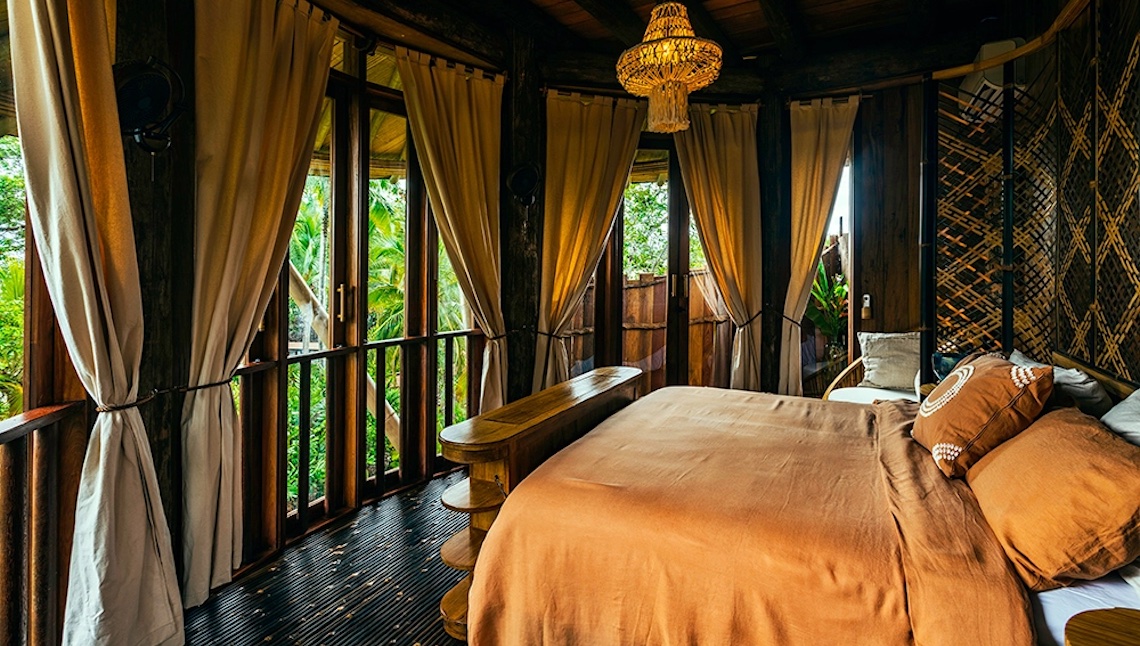
Brice Ferre-Photography
“We tried to take everything that’s cool about tree houses but give it a contemporary spin that still celebrated the forest,” Laurence Lipson, managing director and co-owner of the Green O, says.
With just 12 accommodations, the Green O’s primary goal was to create a sense of privacy for couples while honouring the bounty of Montana timberland.
“Mindfulness of the environment was of the utmost consideration in designing and building the Green O,” Lipson says. “One of the primary goals for the design of the hauses was to bring the outdoors in and to create a seamless transition between haus and forest. We also wanted it to be as private as possible because we knew that they could be perfect for couples’ getaways and had the thought that visitors would want to experience the wilderness in a way that’s very private.”
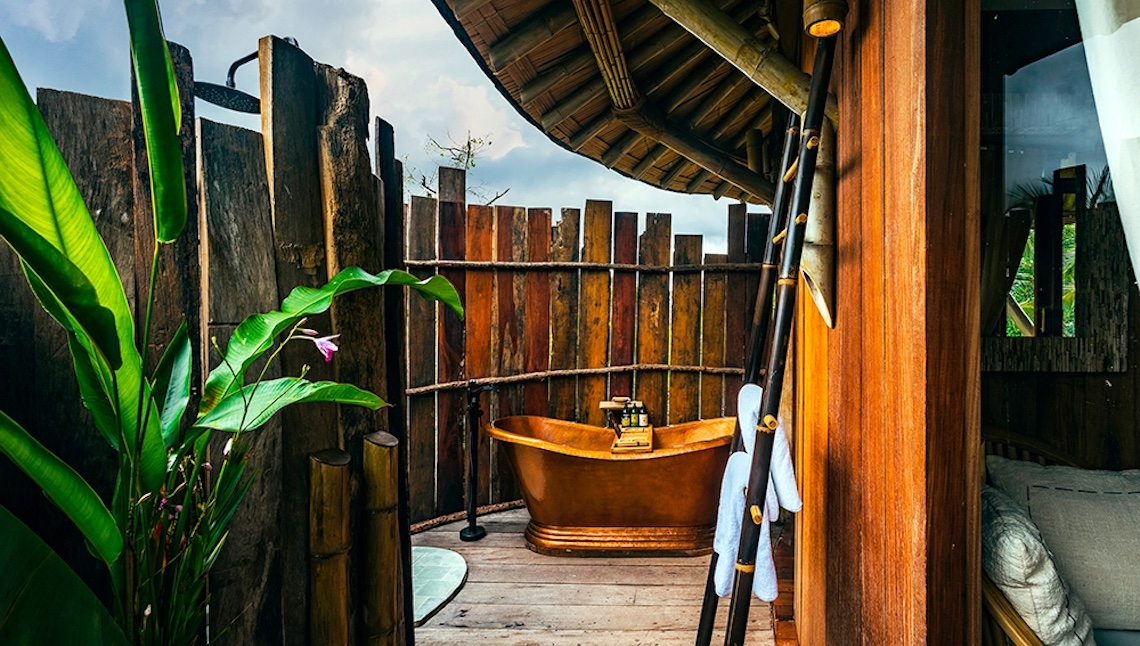
Brice Ferre-Photography
The honeymoon jet set is certainly a target audience for all tree house resorts. But one of the newest and most romantic is Panama’s adults-only Frangipani Island, Nayara Bocas del Toro. In February, it unveiled two 50-foot-high tree houses and has three more on the way.
“With a balance of elegance and texture, we are at once open to nature and sheltered within our own space,” resort designer Elora Hardy says.
Blending Balinese and Panamanian vernaculars, the tree houses are tricked out with outdoor jungle showers and deep soaking tubs. Each space has been handcrafted from locally harvested bamboo and 19 varieties of reclaimed and partially petrified hardwood recovered from the Panama Canal.
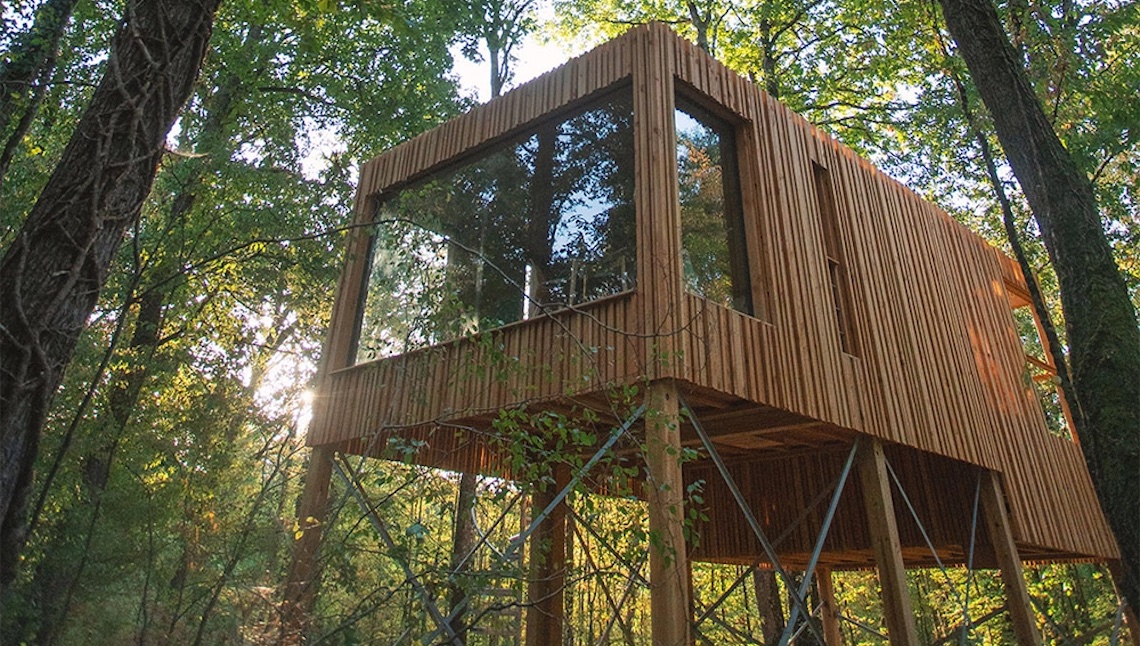
Anne-EmmanuelleThion
“We are absolutely seeing a rise in accommodations inspired by nature,” says Hannah Nelson, the PR director for sustainable hotel brand Beyond Green. “When followed through with the local and ethical sourcing of materials, these types of lodgings can dramatically improve the sustainability and attractiveness of hotels for guests who crave more authentic ways of living.”
That’s certainly true at Post Ranch Inn, whose tree houses were designed to protect the roots of the redwood and native oak trees while providing guests with the opportunity to connect with nature and leave with a sense of purpose as future stewards of the land, according to Freed.
“What we’ve learned is that guests are beginning to understand the importance of selecting hotels that embrace sustainability, not just in the design, but with more of a focus on organics, especially with food, and the products used throughout the hotel,” he says.
This story was first published on Robb Report USA

